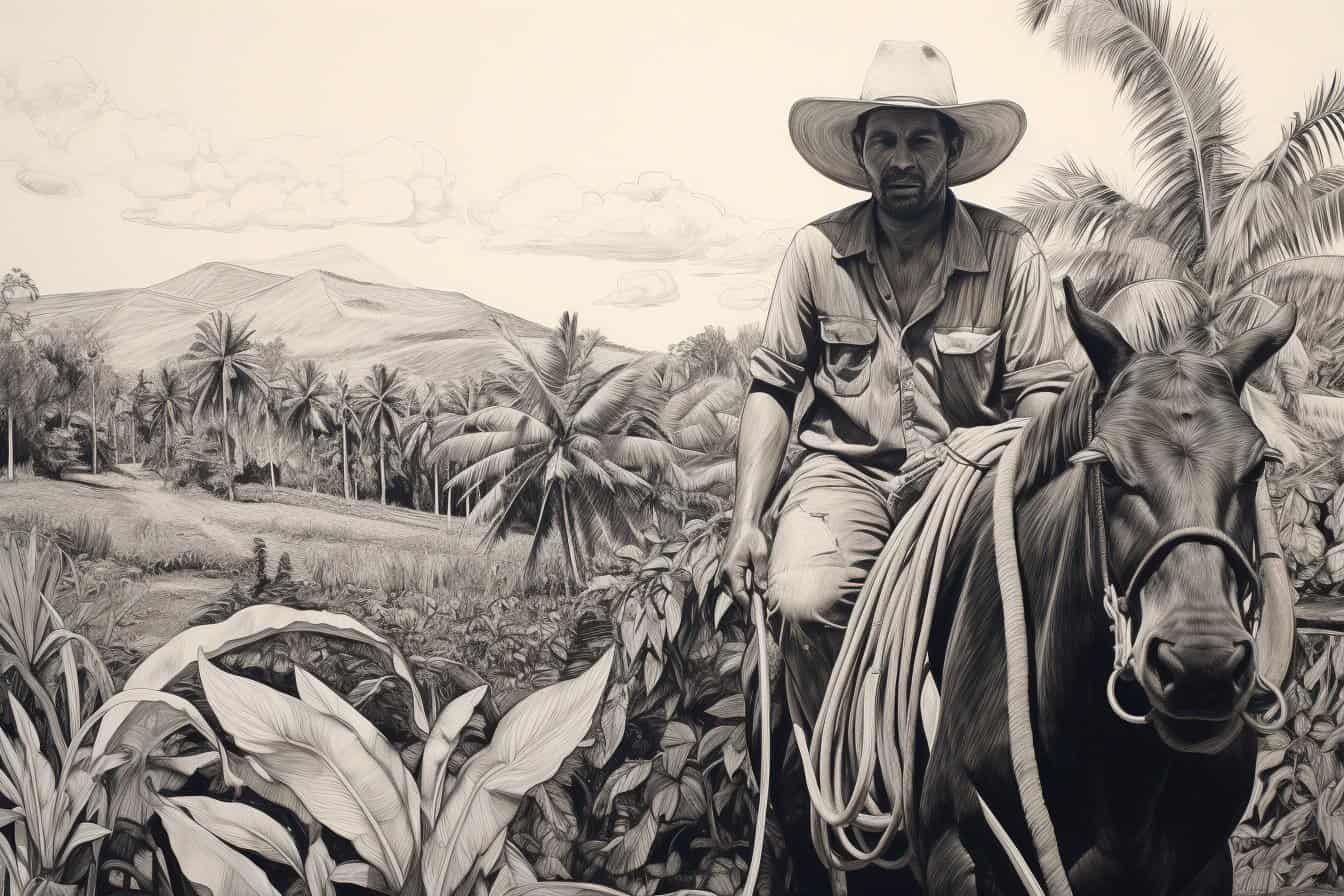A friend of mine bought a farm in a remote area of Costa Rica. The nearest village was a few kilometers away, and the nearest town for supplies was a half-hour drive. He traveled frequently, so he hired a local man to oversee the property. The caretaker, who I will call Marco, had a wife and five children. The oldest of the kids was a teen who had quit school after the seventh grade and helped his father with the subsistence agricultural work that sustained them.
My friend was a generous sort and helped the family. Besides paying Marco a higher-than-normal pay, he also fixed up a house on the property for the family to occupy, that was larger and nicer than the cabina they had been renting. The house was free, and he included water, electric and satellite tv. He also gifted them a heavy, boxy, old-school color tv to connect to their dish. Once my friend felt he could trust Marco, he gave him a quadricycle to get around, and entrusted him with a gun for protection.
About a year later I went with my friend to his farm. Marco and his son were out working. Marco’s wife, call her Maria, was there with the other kids. She was sitting with her legs propped up, watching tv. She was overweight and had circulatory issues that affected her legs and feet. Her life had been one of hard domestic work and a diet heavy on starch and sugars. Her daughter had completed seventh grade and was now done with school and helping with the housework.
Maria asked me if I could pass a message on to my friend, the farm owner. His Spanish was not good and she was unable to communicate to him that there was a dire problem on the farm. Marco, she said, would come home drunk and take out the gun. He would wave it around and threaten her and the family. Tell her they were nothing without him. Say they didn’t appreciate his years of hard work. It had happened numerous times, and though he had never fired the gun, his anger level seemed to raise a notch with each outburst.
I relayed this information to my friend and he came up with a reason to get his gun back from Marco without letting him know what Maria had said. One day soon after, I saw Marco in town on the quad, with a young woman passenger. I did not think anything of it, as I assumed she was a family member. My friend later informed me that Marco had left his family in the caretaker house and moved back to his old cabina with a much younger girlfriend. Not long after, my friend sold his property and returned to his home state of Arizona.
I did not see Marco or Maria for some years. Then one day, by coincidence, I saw both within hours, in town. Maria and I chatted. I was happy to see that she had lost some weight and was not struggling with mobility. She was now twice a grandmother, she informed me. Her son, now 21, had a son of his own, and lived in the same caretaker house as before.
Her daughter, now 17, had recently given birth and moved in with the father, a young man who lived in another village a few kilometers away. She confided to me that for all the nice gestures my friend had made for them, she sometimes still wished he had never come to their village.
His generosity, she said, had gone to her ex-husband’s head to the point that Marco would lie to people and claim the quad, the house, the farm were all his. My friend’s arrival changed Marco for the worse, and she would have been happier being poor in the cabina.
That same afternoon, I saw Marco in town from a distance. He was at the bus station loading a sack of supplies onto the bus. With him was the same younger woman as before. She was visibly pregnant.
They were heading back to the campo on the bus, not the quad, and the village where middle-aged Marco would now be starting his second family. He had fallen back to earth. His campesino work ethic would sustain them, until the day he would hopefully find a patron as generous as my friend had been.






